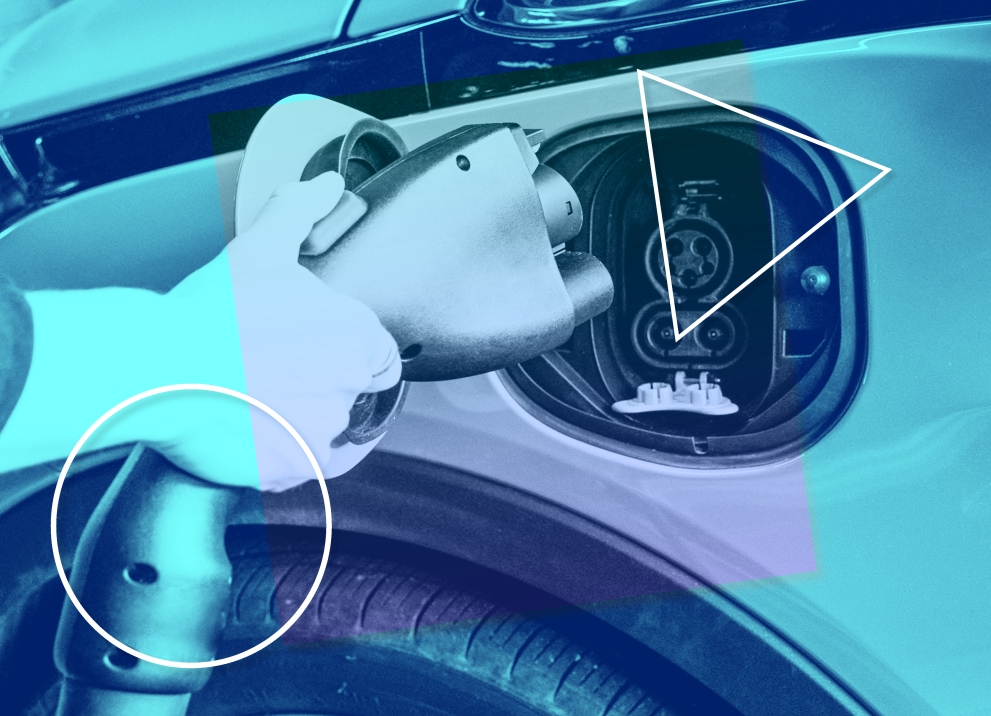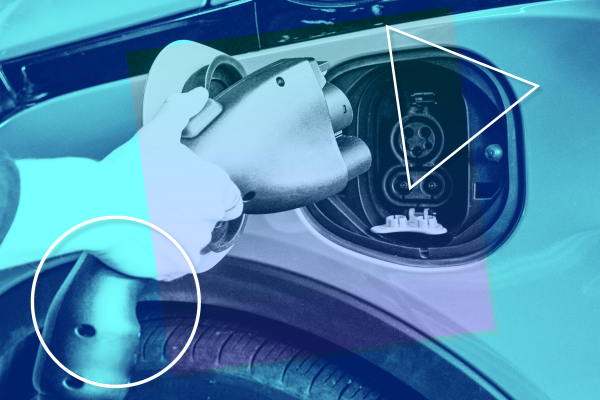
The Living Lab for Testing Digital Energy Solution (DES-Lab) in collaboration with the EU Policy Lab coordinates an experimental project using nine electric-vehicles charging stations at the JRC in Ispra. Unlike other charging stations, this project supplies each station with electricity produced by on-site photovoltaic panels, a 100% clean energy source. The project also aims to test user’s behaviour and to assess energy demand and response against photovoltaic production.
By providing a testing environment that emphasizes sustainability and end users’ participation, DES-Lab is creating a platform for the development and implementation of cutting-edge digital energy solutions to be scaled up for wider urban contexts.
Bridging the gap between research and practice: the Living Lab approach
A living lab is a user-centred research and innovation approach that brings together various stakeholders, such as researchers, companies, government entities, and citizens, to co-create, experiment, and evaluate solutions in real-world settings.
The main goal of a living lab is to bridge the gap between research and practice by involving end users in the design and testing of new products, services, or policies. Unlike traditional research methods that are conducted in controlled laboratory environments, living labs operate in real-life contexts, such as homes, schools, hospitals, and cities, where users can provide feedback and insights on the solutions being tested, ensuring that the final products or services meet their needs and expectations.
Living labs typically focus on specific domains, such as smart cities, healthcare, education, energy, or mobility. They bring several benefits for all stakeholders involved:
- For users, living labs offer the opportunity to participate in the design and testing of new technologies and services that can improve their daily lives;
- For businesses, living labs provide access to a real-life test environment where they can validate their products and services and get early feedback from users and stakeholders;
- For researchers, living labs offer a unique opportunity to study and understand the complex interactions between technology, people, and society in real-life settings;
- For policymakers, living labs provide a testbed for policy experimentation and innovation, enabling evidence-based and more informed decisions.
As a leading research centre, the JRC Ispra is hosting a Living Lab focusing on digital energy solutions: the Living Lab for Testing Digital Energy Solutions (DES-Lab).
With buildings, road, utilities, high-speed communication networks, and a population of almost 2500 people, the JRC Ispra site simulates an urban environment, and can be effectively used as a testbed for policymaking.
Smart EV-Charging stations: a DES-lab project
As a dedicated proponent of smart and sustainable technologies, the Living Lab for Testing Digital Energy Solutions (DES-Lab) is committed to testing innovative energy-related solutions in living contexts, promoting environmentally conscious practices and entrepreneurship.
High-tech start-ups can apply for testing their technologies upon an open call of interest, making use of a living environment such as the JRC Ispra site. The winning applicant to last JRC open call, Silla industries, has signed an agreement with the JRC Ispra for a 3-year experimental project to test their technologies on-site.
Silla industries is an Italian start-up offering services in smart energy solutions. Particularly, it offers a product called PRISM, an electric vehicle charger featuring an open solution for smart charging of electric cars. This solution offers charging services that can be customised by the user, according to specific needs, and in particular allows smart charging using the electricity produced instantaneously by a PV system connected to the local grid.
In cooperation with the Infrastructures department, the DES-Lab has installed nine EV charging stations by the JRC Ispra solar parking for staff usage. Users of the stations agree to let the DES-lab team collect data on:
- the status and availability of the chargers;
- session starting and ending time and overall session duration;
- instant power;
- total energy supplied within a session.
All of this information is at disposal of staff and shown on an interactive dashboard, for users to visualize their consumption and activity in real time. JRC staff act like citizens of a living city, making use of a new technology in everyday life and providing feedback on their user experience.
The Living Lab approach allows studying user behavioural implications in relation to new technologies and steering users towards more virtuous and sustainable practices.
The project can contribute in an important way both to site modernization and to delivering evidence-based information for urban planners and policymakers. The project discloses different possibilities:
- Enhancing urban mobility: the research findings can inform the development of charging infrastructure for electric vehicles, which can help to reduce air pollution and traffic congestion in urban areas;
- Apply cost-benefit analyses: this research can help assess whether more charging points, more storage systems or more renewable energy sources could best fit the needs of an urban district;
- Build user experience: this research can help exploring collective behaviours for managing electricity demand and maximize the use of renewable electricity;
- Promoting social equity: the research can help policymakers identify suitable billing options that promote social equity and ensure that all citizens have access to renewable energy sources;
- Engaging citizens in sustainable energy practices: by involving citizens in decision-making processes and providing them with tools to monitor and manage their electricity usage, urban communities can become more sustainable and environmentally friendly.
Are you curious to find out more about DES-Lab projects?
You can reach out at: JRC-Energy-Living-Lab@ec.europa.eu.
Fostering cross-fertilization and cross-sectorial cooperation
The DES-Lab started a collaboration with the EU Policy lab to improve communications directed at electric car owners using the charging stations. The main objective is to understand better how to use behavioural insights to change people's use of charging stations at the Joint Research Center in Ispra.
The project aims to improve compliance with the charging stations' rules, promoting proper behaviour and allowing better use of the chargers. More specifically, we aim to improve compliance with hour limits to reduce the occupancy of the parking spots after the charging session. We also want to stimulate more efficient use of solar energy by encouraging users to charge their cars during lunchtime when solar power is at its peak.
Featured image by dcbel on Unsplash
Details
- Publication date
- 23 February 2023
- Author
- Joint Research Centre
- EU Policy Lab tags

